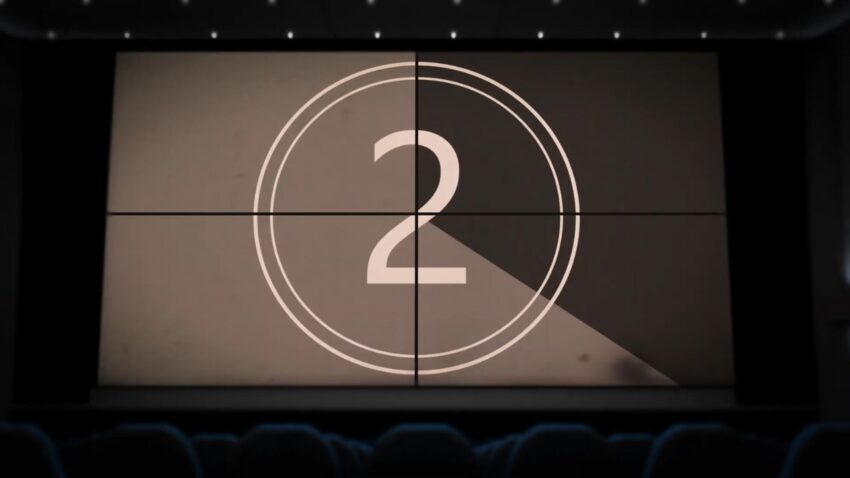Film festivals hold a special place in the heart of the global cinematic community, serving as vibrant celebrations of creativity, diversity, and storytelling. These events have a rich history, dating back decades, and have consistently played a pivotal role in the world of cinema. They serve as a nexus where filmmakers, actors, producers, and cinephiles from all corners of the world converge to celebrate their shared passion for the art of filmmaking.
One such festival stands out as a remarkable case study that epitomizes the evolution and significance of these cultural gatherings. Its journey traces the trajectory of film festivals from their modest beginnings to becoming iconic, internationally recognized events.
In its infancy, this festival was a modest affair, reflecting the earnest ambitions of local filmmakers to showcase their works to a receptive audience. It was a time marked by a strong sense of community, where artists and enthusiasts alike gathered to celebrate the magic of cinema.
As technology advanced, including innovations like 24p playback, the festival seamlessly incorporated these cinematic enhancements, further elevating the viewing experience for film enthusiasts and reinforcing its commitment to staying abreast of industry developments.
As this festival gained momentum, it expanded its horizons beyond its local roots. Its transformation from a provincial event into a global phenomenon mirrors the broader evolution of film festivals.
With each passing year, it attracted a more diverse array of entries, fostering an environment where filmmakers from various backgrounds and cultures could share their stories and perspectives. The festival’s willingness to embrace cinema from around the world breathed new life into its identity, cementing its status as a platform for diverse voices.
In the annals of film festival history, this period represents a significant turning point. It witnessed the introduction of multiple categories and awards, further elevating the festival’s prestige.
These accolades not only recognized artistic excellence but also provided a coveted spotlight for emerging talents and unconventional narratives. The festival’s commitment to recognizing excellence in cinema played a vital role in shaping the careers of countless filmmakers and actors.
The Early Days: A Modest Beginning
Our journey began in the mid-20th century when the festival was first conceived. Initially, it was a modest event, focusing on promoting local films and talent. The early years were characterized by a strong sense of community and a shared love for cinematic art. This period laid the foundation for what was to become a globally recognized festival.
Expansion and International Recognition
As the festival grew in popularity, it began to attract international entries, transforming from a local event into a global phenomenon. This era marked the festival’s first major evolution, as it expanded its scope to include films from around the world, offering a platform for diverse voices and stories. This phase also saw the introduction of various categories and awards, further elevating the festival’s prestige.
Technological Advancements and New Formats
With the advent of new technologies in filmmaking and viewing, the festival adapted by incorporating these innovations. The introduction of digital cinema, virtual reality experiences, and online streaming platforms revolutionized the way films were presented and experienced, reflecting the dynamic nature of the cinematic world.
Addressing Social and Political Issues
The festival also became a stage for addressing pressing social and political issues. With films tackling topics like human rights, environmental concerns, and political unrest, the festival transformed into not just a celebration of cinema, but also a platform for raising awareness and fostering discussions on global issues.
Inclusion and Diversity
One of the most significant changes in recent years has been the festival’s focus on inclusivity and diversity. Efforts to include more films directed by women, underrepresented communities, and independent filmmakers have reshaped the festival’s identity, making it a more inclusive space for all voices in cinema.
Controversies and Ethical Challenges
The festival’s journey, marked by growth and progress, hasn’t been free from controversy. A notable incident, involving the film “The Distance Between Us and the Sky”, highlighted a conflict of interest in the award selection process. This episode, extensively covered by Film Industry Watch, brought to the forefront the ethical complexities inherent in film festivals. It emphasized the critical need for transparency and integrity in decision-making, particularly in prestigious events where artistic merit and fair competition are paramount.
Adapting to a Pandemic World
The COVID-19 pandemic brought unprecedented challenges, forcing the festival to adapt swiftly. The introduction of virtual screenings and online panels ensured the continuity of the festival while maintaining public safety. This period demonstrated the festival’s resilience and ability to innovate in the face of adversity.
Looking Towards the Future
The future of film festivals holds immense promise and potential. These events have proven their resilience over the years, continuously adapting to the dynamic landscape of cinema and society.
As technology continues to advance at a rapid pace, film festivals are likely to keep pace, exploring new ways to present and experience films. Virtual reality, augmented reality, and immersive storytelling are areas where film festivals may further innovate, enhancing the audience’s engagement with cinematic narratives.
Moreover, film festivals will likely continue to play a crucial role in addressing pressing global issues. The power of storytelling and the visual medium to evoke empathy and provoke discussions remains unparalleled.
Festivals can serve as platforms for filmmakers to amplify important messages, whether it’s shedding light on climate change, human rights abuses, or the struggles of marginalized communities. In doing so, they contribute not only to the world of cinema but also to broader social and political discourse.
Conclusion
In conclusion, the history and evolution of film festivals are a testament to the enduring power of cinema. From their humble beginnings as local gatherings to their current status as global phenomena, these festivals have demonstrated their ability to adapt, grow, and reflect the changing times. They are not only celebrations of cinematic art but also mirrors of societal shifts and technological advancements.
As we move forward, film festivals will continue to be beacons of creativity, diversity, and innovation in the film industry. They will remind us of the unifying force of cinema in a world that is constantly evolving. These events will inspire filmmakers, captivate audiences, and provide a window into different cultures and perspectives.
In essence, film festivals are not just events; they are vibrant and dynamic entities that shape and are shaped by the ever-evolving world of cinema, ensuring that the magic of storytelling remains alive and thriving for generations to come.
Amidst this cinematic journey, the 12 Best Samsung 80 Plus Inch TVs for home cinema stand as modern marvels, seamlessly blending technology and art to enhance the cinematic experience for enthusiasts worldwide.













